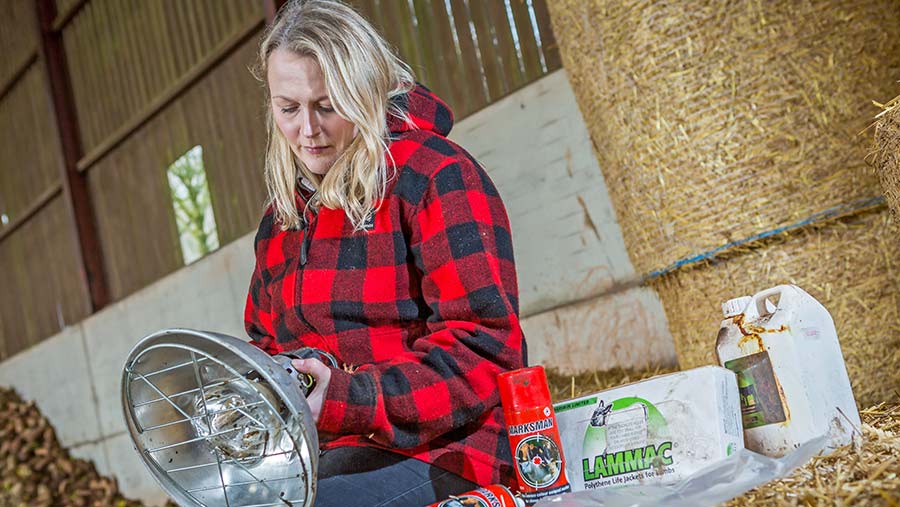Farmer Focus: Lambing starts in snow but weather improves
 © Richard Stanton
© Richard Stanton I wouldn’t be involved in the farming industry if I didn’t mention the weather, so it seemed quite fitting that the day we started outdoor lambing the snow gates opened. How very typical.
However, I think it’s fair to say, apart from the random and adverse weather of two days last week, we have been rather fortunate so far this lambing season.
The grass started to grow last month due to the mild March and we were able to get an application of fertiliser on it, in readiness for the ewes and lambs and spring turnout of cattle.
The home farm lies rather wet in winter and soils are loamy, so we are usually a couple of weeks behind with fertiliser applications and cultivations.
See also: 16 ways to reduce lamb mortality
Growth appears to have been stunted a little due to the recent cooler nights, but I am hopeful we will start to see growth rates accelerate again over the next couple of weeks.
Included within this year’s total ewe flock were 500 in-lamb yearlings or ewe hoggs. This has been slightly more labour-intensive for us, but the kind weather is allowing the day-to-day lambing tasks to remain relatively organised. We are on target to achieve a good ewe-to-lamb ratio.
The Texel-cross lambs are motoring on the younger leys we reseeded last year and we are hopeful we will have a good number of fat lambs to sell in early June.
Lambing is spread out over two sites, with fairly equal numbers of sheep and cattle on each holding. We are fortunate to have a reliable young stockman located at the other farm, which has allowed Josh to be based at our home farm for the duration of lambing.
You soon learn from renting blocks of land how valuable time is, particularly with livestock, and any time spent on the road to and from holdings is expensive.
This year the set-up is working well, cutting down travelling and allowing attention to be focused on the smaller details, thus minimising lamb losses. Fingers crossed, we will see a similar lamb trade to last year.
Read more about Monmouthshire livestock farmer Livy Braid
